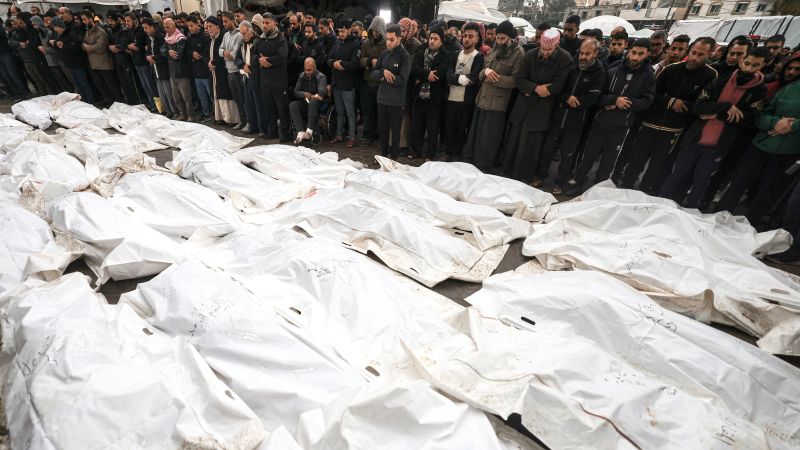50,000 killed in Gaza since start of Israel-Hamas war, health ministry says - CNN
11 days ago

The ongoing conflict between Israel and Hamas has reached unprecedented levels of devastation, with the Palestinian health ministry reporting that over 50,000 Palestinians have lost their lives since the war erupted. This staggering figure highlights the severe humanitarian crisis that has engulfed the Gaza Strip, where civilians have borne the brunt of the violence. The toll of the conflict is not only measured in lives lost but also in the profound suffering and trauma experienced by countless families who have been shattered by the deaths of loved ones. As the war drags on with no clear resolution in sight, the international community is grappling with the urgent need for humanitarian assistance and a long-term solution to the conflict. The recent escalation of violence has led to widespread destruction of infrastructure in Gaza, exacerbating an already dire situation. Hospitals, schools, and homes have been reduced to rubble, leaving survivors without access to essential services. The healthcare system, already strained before the conflict, is now on the brink of collapse, with medical professionals unable to cope with the overwhelming number of casualties. Moreover, the lack of basic necessities such as food, water, and sanitation has created a public health crisis, prompting fears of disease outbreaks in the overcrowded conditions of refugee shelters. The international community faces mounting pressure to respond to the humanitarian needs of the affected population while addressing the underlying issues that fuel the ongoing violence. Israel’s military operations have intensified in response to Hamas's actions, leading to a cycle of retaliation that has proven difficult to break. Each escalation results in further casualties and destruction, with both sides suffering significant losses. The situation is complicated by the political dimensions of the conflict, which involve deeply entrenched historical grievances, territorial disputes, and national identities. As diplomatic efforts to broker a ceasefire falter, the prospects for peace appear increasingly bleak. The continuing violence raises questions about the effectiveness of current strategies to achieve a lasting resolution and the role of international actors in facilitating dialogue between the conflicting parties. As the conflict continues, the voices of those affected by the violence grow louder, calling for an end to the suffering and a commitment to peace. Humanitarian organizations are working tirelessly to provide aid, but their efforts are often hampered by the ongoing hostilities and restrictions on movement. The narratives emerging from the ground reflect a desperate plea for recognition of the human cost of war and the urgent need for a comprehensive approach to address not only the immediate humanitarian crisis but also the underlying issues that perpetuate the cycle of violence. The world watches with bated breath as the situation unfolds, hoping for a breakthrough that can pave the way for healing and reconciliation in a region long plagued by conflict.